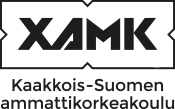Introduction to environmental sciences (5 cr)
Code: EE00CX23-3003
General information
Enrollment
15.08.2019 - 30.08.2019
Timing
02.09.2019 - 06.12.2019
Number of ECTS credits allocated
5 op
Mode of delivery
Contact teaching
Campus
Mikkeli Campus
Teaching languages
- Finnish
Seats
20 - 40
Degree programmes
- Degree Programme in Environmental Engineering
Teachers
- Juho Rajala
Teacher in charge
Juho Rajala
Groups
-
EEMI19SPEnvironmental Engineering, full-time studies
Objective
You are familiar with the basics of ecology and with the main environmental topics. You can find connections between various environmental problems and their impacts in various regions. You study natural and human activity (energy consumption, alternative energy sources, forests and conservation, urbanization, food production, pest control and pollution) and its impacts on the environment. You can combine environmental information from international sources and evaluate it ethically.
Content
What is the role of food web in nature?
What are the reasons and consequences of climate change?
How are energy, material and waste flows connected?
How do various pollution sources affect our waters, soil and air?
Can we prevent pollution?
Who is responsible for environmental protection?
Materials
Course material is distributed online in the Moodle.
Teaching methods
Scheduled track:
You are familiar with the basics of ecology and with the main environmental topics. You can find connections between various environmental problems and their impacts in various regions. You study natural and human activity (energy consumption, alternative energy sources, forests and conservation, urbanization, food production, pest control and pollution) and its impacts on the environment. You can combine environmental information from international sources and evaluate it ethically
Exam schedules
General examination, dates are published later.
Student workload
Based on credits.
Evaluation scale
1-5
Assessment methods and criteria
Students can
a) use professional vocabulary systematically
b) look for information in the key information sources of the field
c) identify interrelated tasks
d) understand basic concepts of ecology
e) work as team members in a goal-oriented way.
Assessment criteria, fail (0)
Course tasks are missing or student doesn't pass the final exam.
Assessment criteria, satisfactory (1-2)
Some course tasks are returned late or the quality is bad. Student doesn't perform well in the final exam.
Assessment criteria, good (3-4)
All the course tasks are returned on time and OK quality. Student performs well in the final exam.
Assessment criteria, excellent (5)
All the course tasks are excellent quality and returned on time. Student does excellent performance in the final examination.
